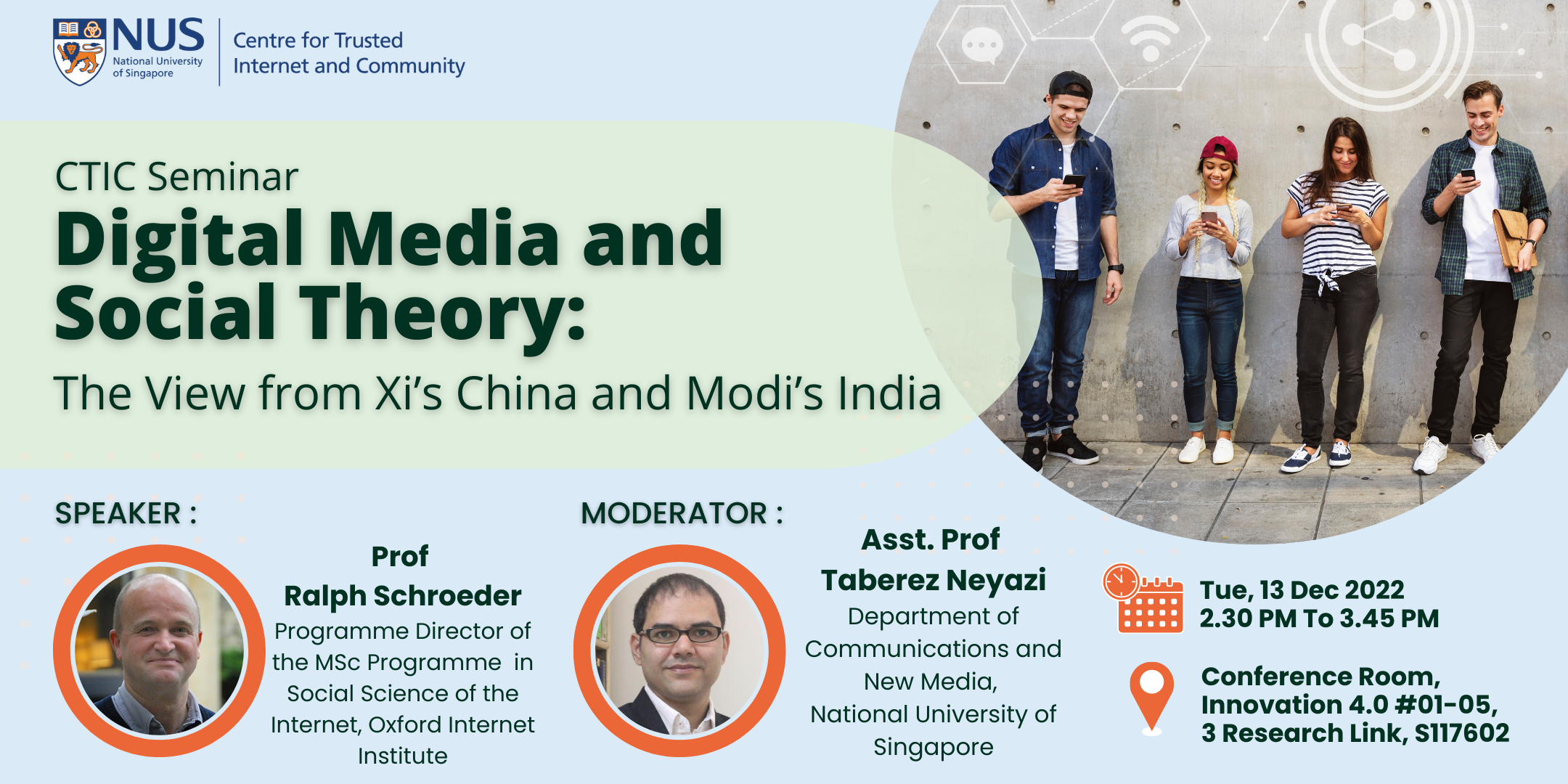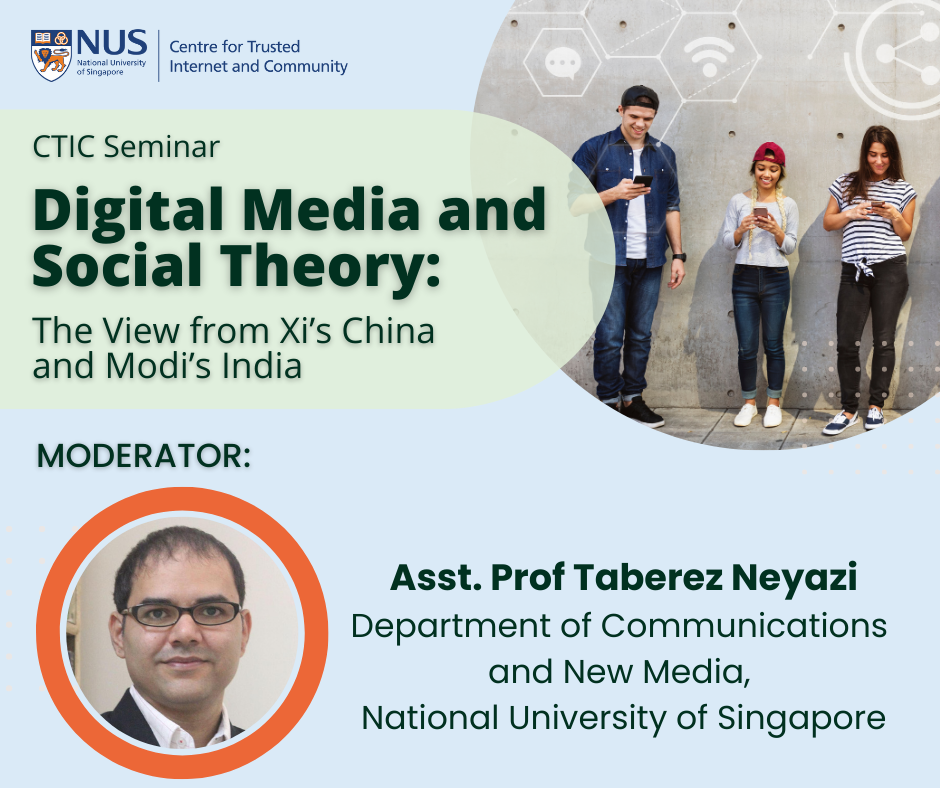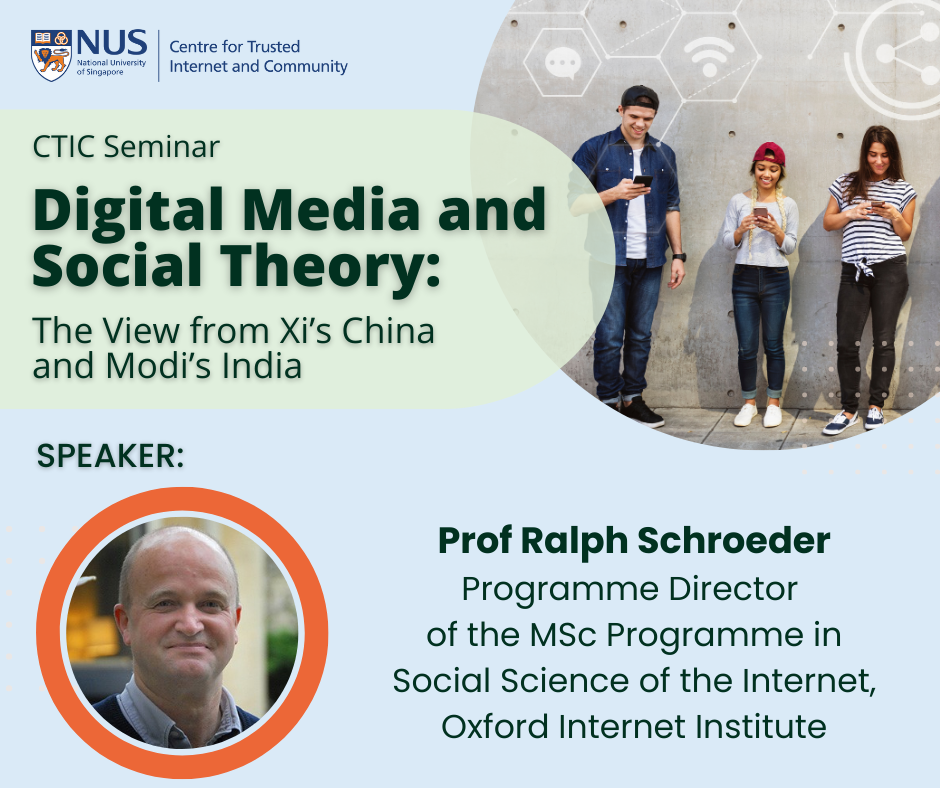
Theories in social sciences, including theories about communication and digital media, have been dominated by the Global North. In this in-person seminar, Prof Ralph Schroeder attempted to redress this imbalance by referencing two major countries – China and India, and discuss how social science theories about digital media could learn from settings beyond the context of high-income democracies.
Prof Schroeder argued that, in both countries, digital – as opposed to traditional media - allowed for greater responsiveness from elites to civil society and vice versa. However, there were mixed effects of this expanded responsiveness. This tied to a second argument, which was that in both countries, the autonomy of the public sphere of media was constrained, though less so in India’s half-democracy than in China’s authoritarian party state. Third, algorithmic (or AI-driven) shaping of the public sphere was becoming widespread, potentially skewing the public sphere, especially in China.
Prof Schroeder was joined by Asst. Prof Taberez Neyazi, who moderated the session.
-
 Welcome address by Asst. Prof Taberez Neyazi. View video
Welcome address by Asst. Prof Taberez Neyazi. View video -
 Presentation by Prof Ralph Schroeder.View video
Presentation by Prof Ralph Schroeder.View video